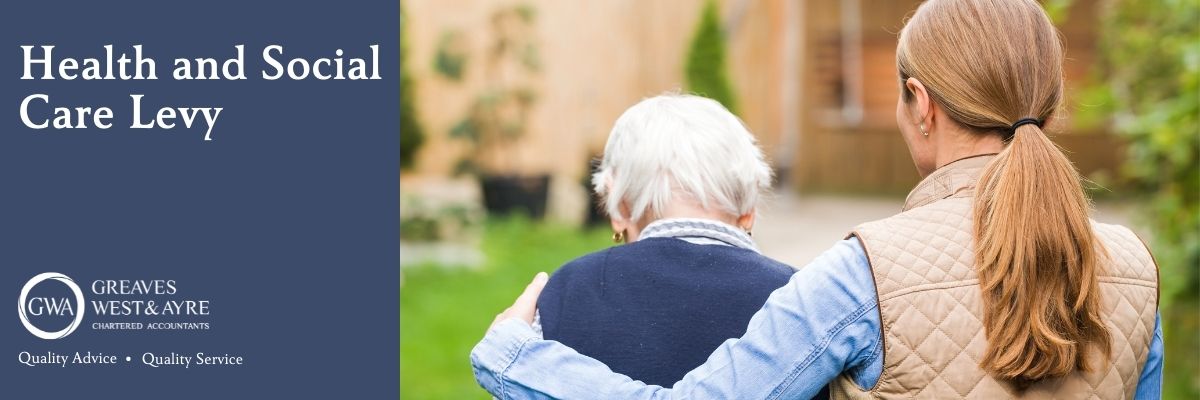New 1.25% Levy to Cover Social Care Costs

Update as of 17 October 2022
As per the Chancellor’s “emergency tax statement” made on 17 October 2022 the Health and Social Care Levy, which took effect in April 2022 will no longer apply as of 6 November 2022.
The Prime Minister has announced an overhaul of the financing of the adult social care system. Included in yesterday’s announcement was confirmation that National Insurance Contributions (NICs) and dividend tax rates will increase by 1.25% for all taxpayers, businesses and individuals, including the self-employed, across the UK from April 2022. The increase will be extended in April 2023 to those who continue to work after state pension age.
The Prime Minister also confirmed that the increases, estimated to raise £12billion a year, will pay for the impact of the coronavirus pandemic on the NHS and will address the long-standing funding gap for health and social care.
There will also be changes to the amount of savings people can retain when facing a move into care and a cap on total cost liability for anyone paying for care home accommodation and care.
Changes to NICs
Legislation will be passed to ensure that the new 1.25% levy eventually becomes an independent tax, discrete from NICs called the Health and Social Care Levy. However, it is estimated that it will take a year for HMRC to update its systems to accommodate and identify the new separate charge, as opposed to a NICs’ increase on payslips.
As such, from April 2022, there will be a temporary 1.25% increase in NICs paid by workers, as well as a 1.25% increase in NIC paid by employers. From 2023, the health and social care levy element will be separated out and the exact amount employees pay will be visible on their pay slips. NIC rates will then return to 2021/22 levels.
From April 2023, the new levy will be paid by all working adults, including those over the state pension age, who are currently exempt from paying NIC.
How much will this mean to employees?
- anyone earning less than £9,680 pa will not have to pay the levy
- someone earning £24,000 pa, which is less than the average wage, would pay an additional £260 a year
- a typical higher rate taxpayer earning £67,100 will pay an extra £715.
Businesses will need to budget for the additional employer’s NICs from April 2022 onwards.
Changes to Dividend Tax Rates
The announcement also outlined a 1.25% increase in dividend tax rates from 1 April 2022, taking rates to:
- 8.75% for basic rate taxpayers
- 33.75% for higher rate taxpayers
- 39.35% for additional rate taxpayers.
The £2,000 dividend allowance will remain. The increase in dividend tax rates will be legislated for in the next Finance Bill.
Paying for Social Care
The announcement included wide-ranging changes to the individual financing of residential and social care in the UK. Under the new plans, the amount individuals will pay towards personal care throughout their life will be capped at £86,000. This cap will be for actual care, rather than accommodation. Currently, anyone in England with assets over £23,250 must pay for their care in full.
The new plans mean that individuals with savings of less than £20,000 will not make any contribution to care cost (this figure is currently £14,000). Those with assets between £20,000 and £100,000 will be eligible for means-tested support. This new limit of £100,000 is more than four times the current limit. If a person’s total assets are over £100,000, full fees must be paid.
The tax-raising measures and their impacts are outlined in the government’s plan for health and social care. It is expected that a white paper on integrated health and social care will be released later this year setting out more detailed plans.
As with any update to the tax system, these changes will create a significant increase in administration for businesses. Payrolls will need to amended to reflect increased NIC rates from April 2022 and then a completely new levy will come into effect from April 2023. As always, our teams will be here to support your individual and business needs.
We will be keeping a close eye on the impact of this announcement as more details become available. We will provide any updates as soon as they are available.
In the meantime, should you have any queries or concerns please do get in touch.


